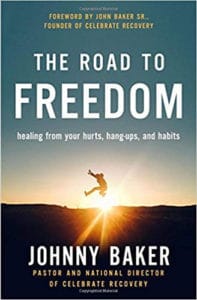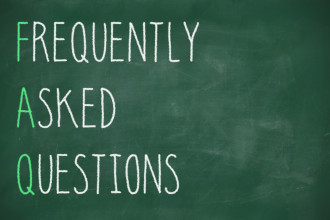
The War of Words
In this Adventures in Odyssey drama, a carelessly uttered word from Eugene creates havoc as it becomes the fashionable insult, resulting in a lesson about the power of words.
Home » Episodes » Focus on the Family Broadcast » Healing the Hurts Behind Your Addiction
Excerpt:
Mr. Johnny Baker: And I think in – in the Christian world, we can do some disservice when we just say, “Oh, just pray it away,” you know? I think finding a therapist, finding some counseling, finding medication, if that’s something that you need and some help that way, that will – and people to talk to about it and find, I’m not alone. I’m not the only one who feels this way. This isn’t what God has planned for me, so I need help to find healing from that.
End of Excerpt
John Fuller: Johnny Baker joins us today on Focus on the Family and he’s got insights on some healthy ways to deal with hurts and bad habits in your life. Your host is Focus president and author Jim Daly and I’m John Fuller.
Jim Daly: John, we did a quick Google search to find out what some of the most common coping mechanisms are for stressful situations. Uh, here’s some of the top results: drinking too much caffeine, sleeping too much, overeating, under-eating, numbing out with social media or TV.
John: Hmm.
Jim: That’s probably the one – I can relate to that – news, weather and sports.
John: (Laughter).
Jim: Can you do that? Click. Click. Click.
John: I don’t – I don’t spend a lot of time clicking around, but, uh…
Jim: (Laughter).
John: I have other ways.
Jim: You’re a better man than me.
John: Other ways of dealing with stress.
Jim: Well, you know what? Those things aren’t bad in and of themselves. I mean, those are all kind of modest things. Uh, if we’re turning to material things instead of God for ultimate comfort, we’re ultimately setting ourselves up for disappointment. And, uh, that’s how we’re wired in a relationship with God. And that was the experience of our guest today. When he was a teenager, he began, uh, using alcohol to numb and, uh, cope with that anger and pain, and it spiraled into an addiction that isolated him and threatened all of his relationships. And it’s powerful. I appreciate someone like this because they had to go through some really tough valleys, and the – the Lord has given them a testimony. And you’re gonna hear a great one today. And even if you consider your bad habit or hurt to be less serious than alcoholism – you start, you know, making that comparison thing – Johnny’s story of finding freedom will give you that hope that you can find true freedom through Christ.
John: Mm hmm.
Jim: That’s the key.
John: And Johnny Baker is Saddleback Church’s pastor of Celebrate Recovery. You’ll hear him mention that, I’m sure, today. Uh, it’s a 12-step Christ-centered recovery ministry that offers hope and help to those dealing with an addiction or with trauma. Johnny is also a husband and dad of three and has written a book called The Road to Freedom: Healing from Your Hurts, Hang-ups, and Habits. We have that book at focusonthefamily.com/broadcast.
Jim: Hey, Johnny. Welcome to Focus on the Family.
Johnny: Thanks for having me, guys.
Jim: It’s great to have you.
Johnny: I’m so excited to be here.
Jim: Yeah. I mean, it’s been a long road, right?
(LAUGHTER)
Johnny: It has been, yeah.
Jim: We’re gonna talk about that. But you make the claim that most of us, if not all of us, uh, have some unresolved pain or unhealthy coping mechanism. It’s kind of the curse of humanity, isn’t it?
Johnny: Sure. Yeah.
Jim: We cover the – it’s the fig leaf, right?
Johnny: Yeah.
Jim: We start covering up and hiding, and it’s just part of who we are as human beings in a sinful world. Uh, but what are some signs that we should take a second look at when we’re looking at our behavior that you’ve learned to be cautious about?
Johnny: Yeah. I think it’s what you said when you, you know, read the introduction there, when you were talking about the different coping mechanisms that we have. You know, the Bible says we’ve all sinned and fall short of the glory of God, which means we’ve all hurt other people with our sin. We’ve all been hurt by other people in their sin. And that’s all of us. None of us escape that, like you said. It’s the curse of humanity.
Jim: Yeah.
Johnny: And so, I think what we need to do, um, when we start to think, “Is this something that I need to deal with?” is to really just take an honest and open look at it. And so, you know, if somebody is doing one of those things – sleeping too much, drinking too much caffeine, which is one I don’t wanna look at right now.
(LAUGHTER)
Jim: Right.
John: No judgement.
(Unintelligible)
Jim: Those are the light ones, right?
Johnny: Exactly. But, you know, I think it’s funny because we want to be able to say, “Well, at least I don’t…”
Jim: Right.
Johnny: Fill in the blank. “I’m not as bad as my neighbor. I’m not as bad as whoever.” And I think any of those things that you – like you said, that are in the position of Christ in our lives are things that we need to take a look at and say, “How much is too much, and when do I need to…”
Jim: Right.
Johnny: “…When do I – what do I need to do to deal with this?”
Jim: That’s exactly right. That’s why, you know, lay the comparison thing at the – at the doormat today. And let’s just talk about what hooks us and what keeps us from that deeper relationship in Christ.
Johnny: Right.
Jim: That’s kind of the overarching thing. Hey, I understand that your, uh, personal struggle with addiction – alcohol…
Johnny: Mm hmm.
Jim: …Was the – I think the core thing, but you can set me straight.
Johnny: Sure.
Jim: It kind of started about 14. Describe for us the environment. You know, I’ve – I’ve got teen boys.
Johnny: Yeah.
Jim: And for all of us listening that have those teenagers or 20-somethings even…
Johnny: Yeah.
Jim: What are – what were some of those things environmentally for you that were pushing you in that direction?
John: Sure. So, my dad, John Baker, is the founder of Celebrate Recovery. And so that…
Jim: OK. That right there is amazing.
John: Yeah.
Jim: I mean…
John: And – and so we can talk about that.
Jim: (Laughter).
John: But before he was the founder of Celebrate Recovery, he was a practicing alcoholic.
Jim: Right.
John: And that was the environment I was raised in. Uh, when I was about 13, my parents got separated. My mom said, “Either deal with this, go to counseling with me or get out.” And to all of our surprise, my dad left. And it was during that time that I began experimenting with drugs and – and different things.
Jim: What was going on, though? I really wanna be crystal clear for the listener.
Johnny: Mm hmm.
Jim: I mean, as that 13- 14-year-old boy…
Johnny: Sure.
Jim: What pushed you in that direction?
Johnny: Yeah.
Jim: What was lacking? What could have kept you?
Johnny: That’s such a good question because I think part of it is, I’ve always been somebody who kind of wanted to rebel. I’ve always – I’ve always had that sort of urge to be wild and kind of do – do my own thing.
Jim: Don’t go with the flow.
Johnny: Yeah.
Jim: OK.
Johnny: And it was – it was during the – that time that I found my excuse. My parents were separated.
Jim: Huh.
Johnny: And so, I – I was able to act out and do things that I wanted to do, and nobody was gonna say, “Oh, well, you shouldn’t do that.” I had – I had this perfect excuse at home. And at the same time, as my dad was out of the house, he began his recovery journey. He began attending Alcoholics Anonymous and got sober there.
Jim: Right.
Johnny: Um, and so, our paths were starting to kind of go in different ways. As he was starting to find sobriety, I was starting to act out a little.
Jim: Yeah.
Johnny: Now, thankfully, although I did act out at that time, I was also able to kind of – I was plugged in at our church, and I was plugged in through different things. And I had some really good mentors who helped get me straight for that time. And so, when my parents started Celebrate Recovery, I was able to attend and help them set up and do all of those things. But then later on in life, I moved to LA. I was just about 21, moved to LA and, uh, started drinking and started going out pretty much every night and really fell into depression and serious alcoholism, uh, that took me away from everything that I loved. I stopped going to church. I stopped having some key relationships in my life.
Jim: Yeah.
Johnny: Thankfully, met my now-wife at the time at our church – I went to a college ministry event and – and met her, hid my drinking from her.
Jim: Yeah.
Johnny: Um, and so really, it was my own choices and my own character that really led me down the path that I ended up going.
John: Where’s the balance between acknowledging that we’re at risk to repeat those patterns but not feeling destined to? I’m sure some listeners are thinking to themselves, you know, that maybe right now they’re struggling with alcoholism.
Johnny: Yeah. Yeah.
Jim: Just – or maybe drug addiction.
Johnny: Right.
Jim: Whatever it might be. And their dad was in that same place.
Johnny: Sure.
Jim: And they’re saying it’s, you know, “It’s fait accompli.”
Johnny: Right.
Jim: “I can’t fight it.”
Johnny: Right.
Jim: You might have even said that at one point.
Johnny: Well, I actually thought he didn’t know how to do it right, and I was gonna show him the right way.
(Laughter)
Jim: Well, yeah. What – so tell me…
John: Oh, really?
Johnny: Yeah.
Jim: …What that looks like?
Johnny: Yeah. Well, I just thought, you know, he – he got trapped and he didn’t know how to handle it. And I was – I’d learned from his mistakes, and I was gonna be fine.
Jim: And you could do better.
Johnny: I was gonna handle – I was gonna do it, and I would be fine.
Jim: You could do alcoholism better.
Johnny: And I did.
Jim: (Laughter).
Johnny: He never got arrested, and I did. You know, he did (laughter) lots of different things. But, um, I also have teenage children, and I’m terrified sometimes.
Jim: Right.
Johnny: About alcoholism and about, you know, the culture of, um, you know, recreational marijuana in our culture and all those things. And so, uh, it’s scary. And so, I made a decision a long time ago to talk to them openly at an age-appropriate level when they asked me questions about things.
Jim: Uh, Johnny let me – in the book The Road to Freedom, you had a great story in there. And, you know, in so many ways, people can relate, even though the nouns might be different.
Johnny: Sure.
Jim: You had to make that really hard phone call…
Johnny: Right.
Jim: …When you got pulled over, arrested for a DUI.
Johnny: Yeah.
Jim: How old were you, and who did you call?
Johnny: Yeah. So, it was December of 1999, so I was in my 20s. And I – I’ll never forget. I – I called my dad. So, I was terrified because I wasn’t just calling my dad, but I was also calling the pastor and founder of Celebrate Recovery, this worldwide ministry…
Jim: Oh yeah.
Johnny: …that’s helped so many people. But here’s his own kid calling and saying, “I’ve – I’ve made this mistake.” But he was so gracious. He – he picked me up in the morning, and he said on the way home – I’ll never forget it. He just looked at me and goes, “I’m not gonna lecture you. You’ve made some choices. I think you need to look at your actions.” And that was it, and he really let me go and figure out my own thing. And I’d love to say, “Oh man, it was from that moment on I never drank again.”
Jim: Right.
Johnny: It’s just not my story. I didn’t drive after I drank again, but I – I continued drinking because I made the decision that it was the driving that was the problem.
Jim: Yeah.
Johnny: The drinking was fine, you know? (Laughter)
John: Hmm.
Jim: Well, no, and I so appreciate that. And I think the reason I wanted to hear that story is because your dad’s reaction.
Johnny: Yeah.
Jim: I mean, he – that’s a great father reaction…
Johnny: Yeah.
Jim: …Even if he didn’t head up…
Johnny: Right.
Jim: …Celebrate Recovery.
Johnny: Right. It’s so great because, you know, the lecture could have just made me angry or, like, “I know, Dad.”
Jim: Oh, yeah.
Johnny: Or whatever it is. And instead, it really – it resonated with me, and it kind of haunted me for a while.
Jim: Yeah.
Johnny: Because it was so gracious and – and so gentle. And, uh, you know, thank goodness he had his own recovery to lean on to know not really – you know, “We’re gonna put you in a rehab, and we’re gonna put these things on you.” Now, the next call I had to make when I got home was to my fiancée, and I thought for sure she was gone. Just – you know, and she – thankfully, she just said, “OK. I’m – I’m coming over.” She was at work. She left work and came over and hung out for a little while and talked through it. And, uh – and we got married in 2000, and, uh, I ended up hiding my drinking from her for a number of years before I finally…
Jim: Hmm.
Johnny: …Checked out rehab for myself.
Jim: So that kept going for a long period of time.
Johnny: Yeah.
Jim: Uh, you say there are three main reasons that we don’t admit to having a problem. Uh, outline those for us, those three main reasons.
Johnny: Yeah. You know, one is that we – we’re afraid to admit that we have a problem because it makes us feel like we’re weak.
Jim: Yeah.
Johnny: And so, you know, if we don’t admit we have a problem, it feels – you know, not admitting a problem, it – it makes us feel like, “Oh, well, we’re – I’m weak if I admit I’m – I have a problem.” And I think that we need to be careful for that because it’s when we admit our problems that, actually, God is able to work in our lives.
Jim: Yeah, so when we are weak, He is strong…
Johnny: Right.
Jim: …Or something about that. (Laughter)
Johnny: We have this feeling that we’re just – we’re just gonna put it together. We’re gonna hold it together. You know, we’re gonna make it work. And so, you know, another reason is we don’t trust God. We don’t trust that He really cares about us and that he really can – that He really wants to help us. And then we don’t believe He can help us, or maybe we can’t be helped.
Jim: Hmm.
Johnny: And when those things happen – and so, like you said earlier, if somebody is listening to this and they’re struggling with their own issue, they might think, “Man, I can’t – I can’t tell anybody about this cause I’ll get judged or, you know, I’ll get kicked out of my church or my small group or whatever it is.” And – and, you know, the Bible says that we need to “Confess our sins to each other and pray for one another so that we can be healed.”
Jim: Right.
Johnny: We’re forgiven when we tell God, but we’re healed in this way when we tell each other because – we have a saying in recovery that we’re as sick as our secrets.
Jim: Oh, wow.
Johnny: And so, that thing that I can’t talk about – if you’re listening to this right now and you’re thinking, “Man, I could never tell somebody this struggle or this thing that I’m dealing with,” that thing owns you.
Jim: Hmm.
Johnny: And if I can’t talk about it, that’s – you know, or to go back…
Jim: Yeah.
Johnny: …To something you asked earlier, “What’s a sign that something is out of control in my life?” I can’t tell anybody about it.
Jim: Wow. That’s a good point.
Johnny: I’m afraid to tell somebody about it and – because I’m afraid I’m gonna get judged or – or, you know, or maybe I just feel like I’m doomed. I just can’t. I’ve – I’ve – so many nights, I’ve asked God to take this from me, or so many times I’ve said, you know, “I – I wanna stop this, and I don’t know how.” And so, it stops us from getting the help that we need.
John: And if you are resonating with what Johnny Baker is saying right there, that you – you just don’t want to tell anybody or you’re not sure who you can tell, give us a call here at Focus on the Family. We have caring, Christian counselors. They’ve heard a lot of secrets over the year and they’re absolutely trustworthy and dependable. And they’ll get you pointed in the right direction toward resources and help, and, uh, maybe an ongoing counseling, uh, conversation as well. Our number is 800, the letter A and the word FAMILY. (800) 232-6459. You can also find help at focusonthefamily.com/broadcast.
Jim: Hey, Johnny. You, um, talk about secrecy and the importance of it, and I think that’s critical. I – I really appreciate, uh, those analogies that your secrecy or your secrets are really who you are…
Johnny: Yeah. Yeah.
Jim: …If you can’t express them and say them. Um, what finally woke you up in your journey? Uh, how old were you?
Johnny: Yeah.
Jim: What – what got you?
Johnny: My wife got pregnant. And so, my oldest daughter – she got pregnant with my oldest daughter Maggie. And, um, I remember because of my DUI, like I said, I never drove after I had anything to drink ever again. And by the way, that was stubbornness because I had to go to a bunch of these classes and they told me, “You’ll get another one.” And so, it wasn’t – it wasn’t like…
Jim: (Laughter) They told you that?
Johnny: Oh yeah, they – it’s – you know, and most people do. And so, I just was like, “Ah, not me. I won’t be that guy.” It – it wasn’t out of the goodwill of other drivers on the road or anything. It was just purely, like, me, “I’ll show you,” you know? And so, (laughter) um, I remember we had just found out she was pregnant. And I just had that moment of thinking, if she were to go into labor after I had a drink, which I was hiding from her, we’d have to call her mom or my mom or somebody to drive us…
Jim: Or Uber.
Johnny: …To the hospital. Right.
Jim: Right.
Johnny: And this is pre-Uber, you know? And so, it was this moment of – even though it was way in the beginning of her pregnancy, the gig would be up. I would be exposed. And so, I decided not to wait for that. I kind of had this moment of clarity, we call it in recovery. And I thought, wow. I really need to make a change. And so, the next morning, I told my wife, I said, “Jenny, I think – I think I’m an alcoholic.” And I told her that a number of times before so she kind of was like, “Uh-huh,” you know? And I said, “No, but this time I really wanna do something about it.” I called my dad. And I said, “Dad, I think I’m an alcoholic.” And he was like, “Yes, you are,” (laughter), you know? And he’s like – I said…
John: He knew.
Johnny: Yeah. I said, “What do I do?”
John: Yeah.
Johnny: He said, “Get to a meeting.” And so, I began – began attending recovery for myself. But really, it was her getting pregnant with Maggie. And I thought, I don’t wanna bring this into my family. I don’t wanna repeat those things and have my kids see me, uh, this way. And thank God this – you know, by His grace they – they never have. That’s not a part of the story that they know. They know the story from me telling them, but they haven’t seen that.
John: Yeah.
Jim: So, with your wife, do you think she really didn’t know? Did you really – could you keep it from her for 10 years?
Johnny: I thought…
Jim: 15 years?
Johnny: I…
Jim: How long was it?
Johnny: I thought I was hiding it. I thought I was doing a good job. I didn’t know until she went through recovery for herself for co-dependency, and she actually wrote her testimony. And she was reading it to me one night. And, um, man, it’s heartbreaking to think about, but she told me, uh, that she knew, but she was afraid to talk to me about it because she was afraid I would leave. And I was afraid to let her know because I was afraid she would leave.
Jim: Wow.
Johnny: So, for the first four years of our marriage, we were afraid that the other person was gonna walk out that door.
Jim: Kind of hiding from each other.
Johnny: Yeah. And so, she was – she was angry, and she was upset and sad but afraid to talk to me about it because she thought I’d go, “You know what? I’m out of here,” and I would just leave. And I was afraid of the same thing with her. And so no, I – I – and that’s the thing about denial. We talk about denial a lot in recovery. And that – denial is that thing that says, “You’re getting away with it. You’re fooling everybody. Nobody knows.” And I thought – I really thought I was.
Jim: Yeah.
Johnny: I thought I was fooling her, and she knew the whole time. And so, um, it’s a – it’s a great source of shame for me.
Jim: How did you – I mean, again, you are pregnant as a couple and that starts you thinking differently.
Johnny: Right.
Jim: What was that first conversation like when you spoke to her and you both moved toward each other…
Johnny: Yeah.
Jim: …In this hidden secret?
Johnny: Yeah, it was – I would love to say it was this big beautiful moment, but really…
Jim: Well, no.
Johnny: …It was another one of these times where, you know, I – in the past, I would go out, and maybe I’d get a little more drunk, and I would come home and feel guilty, so I’d say, “Oh, maybe I have a problem,” just to kind of pacify and make her think I was gonna do something about it. But this time, I think – so it was a little bit of “the boy who cried wolf” situation in some ways of her like, “Yeah, I’ve heard this before.” But in other ways it was like, “OK, well, what” – and this is such a great question – “What are you going to do about it?”
Jim: Yeah.
Johnny: And so, we began working on that. Um, and as I began my recovery at that – at that point, it really was focused on my behavior, on my habit. And I think for a lot of people, uh, in this situation, um, the addict or the person acting out or the person with the issue, it – it can feel like, man, it’s really on my shoulders. I have to do something. And it’s true. You do. You have to find that recovery or that freedom or that change.
Jim: Yeah.
Johnny: And then once we begin to change, other people in our lives begin to see it. And so, my wife, as I, you know, went through recovery and then I began working at the church and began doing those things, uh, she started to see it. And we had, by this time, three kids, so as a – as a mom staying at home and taking care of our kids, supported me as I went through recovery, but then she was eventually able to go through for her own issues. And now what’s so beautiful is we don’t have secrets from each other.
Jim: Yeah, it’s a goal.
Johnny: Right.
Jim: It’s a good goal, yeah.
Johnny: And it’s a work because there’s still that part of me that says, “You should hide this.”
Jim: Right.
Johnny: Still that part of me that says, “Hey, maybe you should get home before that Amazon package arrives, so she doesn’t know,” and that’s so silly.
Jim: Yeah.
Johnny: I mean, really?
Jim: Yeah.
Johnny: Really? You know? And so, we’ve worked through those things, both of us being in recovery, lots of counseling together and separately as well, um, but there’s been such this change in our family now…
Jim: Yeah.
Johnny: …Because we speak recovery in our household.
Jim: Well, and I – you know, I so appreciate that. And people, again, this is just the affliction of humanity.
Johnny: Mm hmm.
Jim: And this is just a big part of so many people’s story. And it may not be alcohol. It’s a whole host of things…
Johnny: Right.
Jim: …That we haven’t even said. But your recovery, as you’ve described it, you know, it’s a process. It’s, uh, healing that takes many years. There’s many layers to it. One thing you learned was that the importance of small, steady improvement and how key it is.
Johnny: Hmm. Yeah.
Jim: And, you know, sometimes we want the whole enchilada, as the saying goes, right?
Johnny: Right. Right.
Jim: We want to get from point A to point Z quickly.
Johnny: Right.
Jim: But you had a story about, uh, running, I think…
Johnny: Yeah.
Jim: …That kind of nailed this for you. What happened?
Johnny: So, I – I’m not a runner. I hate running.
Jim: I’m with you. (Laughter)
Johnny: I hate it. But I really wanted to love it. And so, um, again, part of my addictive personality, I decided I was gonna start running. Now, I have a brother-in-law who’s about seven years younger than me, and he called me up and he said, “Hey, let’s do a half-marathon together.” And he’s in shape and a runner and the whole thing. I was like, “Yeah, let’s do that.”
Jim: (Laughter).
Johnny: So, he emailed me a running plan. And the running plan said on Monday, run a mile; Tuesday, take a day off; Wednesday, run a mile, so on, so forth. So, I did that for the first week. But I was like, you know, 10, 12 minutes doesn’t really feel like a workout. Maybe this is – maybe I’m more advanced than this, you know….
(LAUGHTER)
Jim: Oh, this is getting good.
John: This is the answer. That’s the reason.
Johnny: …This plan. And so, uh, I started running. If it said two miles, I ran three miles. If it said four miles, I ran five. And so about halfway through that training, I was about six weeks in, and I went on my longest run, and I ran for nine miles. I’d never run that far before. And, um, I’m running, and I’m starting to feel pain in my knee. But all the running books – because I was reading books and blogs and, you know…
Jim: You were into it.
Johnny: I was – podcasts, the whole thing, you know.
Jim: Yeah.
Johnny: Because I’m a runner now.
Jim: Right.
(Laughter)
Johnny: You have to understand – I’m a runner. And so, I’ve got the barefoot shoes and the fanny pack with the GU tablets and the whole thing.
Jim: Oh, yeah.
Johnny: You know, so I’m in it. And so, everything I’d read said, “You got to run through the pain.” So, I kept running through the pain. And then my right – or my left foot started hurting, so my right knee and my left foot are hurting. And I’m kind of, well, I’m almost there. And I was gonna run to this spot, my wife was gonna meet me and she was gonna drive me back. The path I was on didn’t have lights or – it was a running path, so I just could keep running. But then about a quarter mile from where I was gonna meet her, I had to stop. And I did that runner’s jog, you know, where you stand there at the crosswalk and check your pulse. And I don’t – I don’t know what I’m checking for, but I’m just doing the – you know, the thing.
Jim: (Laughter).
Johnny: And – and then, uh, as the light turns green for me to cross the street, I step off and pain just shot through the ball of my foot, like, out through my head. My knee seized up. And I had to do this, like, limp walk for the last quarter mile. And literally, as soon as my wife saw me, she goes, “You’re going to the doctor.”
Jim: (Laughter).
Johnny: And I said, “No way. Just a little ice and some Advil, I’ll be fine.” A couple hours later, I’m in the doctor’s office because she’s smarter than me. And, uh, he said, “What” – you know, “What’s going on?” I said, “Well, last six weeks I’ve ran 120 miles.” And he said, “Well, how many miles did you run in those six weeks before that?” I said, “Oh, zero.”
Jim: (Laughter).
Johnny: And he said, “What?” I said, “I haven’t run a mile since high school.” And he said, “So in the last six weeks, you went from zero to 120 miles?” I said, “Yeah. Maybe I should also tell you I’m a recovering alcoholic.” And I’m not kidding, you guys, he took the sheet of paper, crumpled it up, threw it over his shoulder and said, “We have to start all over with you.” And I went through this process of having to heal my IT band and this bone bruise in my foot and this whole thing. And for about six more weeks, I couldn’t run. I was – I was sidelined. And I was grumpy. And I kept – I wanted to run. I’d look at my running shoes by the front door, and I’d say, “Soon,” you know? And I’d start to do it. I laced up my shoes when I finally got the all-clear to run. I ran out the front door, got about 10 yards from my door and I was, “Why am I doing this? I hate this.” And I’ve never run since.
(LAUGHTER)
Johnny: I just – I just – because I tried to do too much too soon. And so, had I followed that plan…
Jim: Right.
Johnny: Oh, by the way, I didn’t get to run the half-marathon.
Jim: Right.
Johnny: So, I didn’t get to do the race. I – I had to pull out of that. Had I done that plan, I might still be running today. I might have at least completed that race. And for recovery and for life change, we want the same thing. We want – we want it to be done now, but that’s not as lasting as small, steady improvement.
Jim: Yeah.
Johnny: That change – that compounds over time.
Jim: Yeah, what a great analogy for life and how to do things in moderation. Again, a great Biblical principle, right?
Johnny: Yeah, I wish that…
Jim: Do those things in moderation. (Laughter)
Johnny: I wish that – I wish that my knee hadn’t had to pay the price for that, but yeah.
(LAUGHTER)
Jim: No, it’s true. Uh, you know, Johnny, um, this is a place to end, but I want to ask you about your bouts of depression. That enters into this as well. And this is gonna connect with a lot of listeners.
Johnny: Yeah.
Jim: Because it’s just epidemic in our culture right now. There’s a lot of things that can get us depressed, and it can overwhelm us.
Johnny: Yeah.
Jim: And of course, again, Scripture’s saying, you know, “Fear not”…
Johnny: Hmm.
Jim: …And to pursue the Lord and let Him be your joy. And at – at one place, as Christians, we read that. We understand it. We talk about it with one another.
Johnny: Yeah.
Jim: But to have it in our hearts, to actually live it…
Johnny: Right.
Jim: …Is a completely different thing.
Johnny: Right.
Jim: So, what was that depression like for you? And how did you fight through that?
Johnny: Yeah, so my depression was – um, was really linked closely to anxiety. I’ve been a worrier my entire life. And I’m just somebody who, I mean, if you – if you guys told me about something good that happened today, I’d tell you three things you should worry about, you know? I’m just – I’m good at finding the cloud in the silver lining. And so, I just have always worried. And so my anxiety, I think on a chemical level and in, you know, my chromosomes, a lot – I come from a family of worriers and I – you know, just sort of a coping mechanism is the kind of, what’s the worst thing that can happen? So that way I’m not surprised. Um, and so as I’ve done counselling and some therapy for that and worked on my anxiety, my depression has gotten better. And I think that one of the things that I would encourage people is to find help for those things. You know, I love when the Bible doesn’t just say, “Don’t do something,” but it gives us the antidote for that, right?
Jim: Right.
Johnny: So, you know, one of my favorite versus in Philippians is, “Don’t worry about anything but in everything, with prayer and thanksgiving, present your request to God.” I love that because now in my family, when I or my kids start to worry, we’ll stop and we’ll go, “OK, what’s this? We’re worrying. What are we supposed to do instead?” So, it’s not just, “Don’t worry. Don’t worry. Because worrying is not trusting God.” It’s true, but it’s not very helpful.
Jim: Right.
Johnny: Instead to say, “Well, let’s pray about that. Let’s stop and let’s turn this over to God.” And so I think – for people that are struggling with those issues, I think just as hard as it is for somebody struggling with, uh, a recovery issue to find that help, I think somebody struggling with a mental health issue, it can be just as hard.
Jim: Yeah.
Johnny: And I think in the – in the Christian world, we can do some disservice when we just say, “Oh, just pray it away,” you know? I think finding a therapist, finding some counseling, finding medication, if that’s something that you need and some help that way, that will – and people to talk to about it and find, I’m not alone. I’m not the only one who feels this way.
Jim: Right.
Johnny: This isn’t what God has planned for me, so I need help to find healing from that.
Jim: No, that is good and good advice. And Johnny, this – this whole program has been wonderful for people to rekindle the hope that they have in Christ and to find ways to cope with their addictions, whatever they might be. And to our listeners, I want to make sure you know about our counseling consultation we offer here at Focus. Just give us a call. The session is completely free to you and our counselors will help you make a plan and figure out, uh, your first steps in finding healing.
John: Yeah. they really are wonderful, caring people and you can set up your time to talk with a counselor by calling 800, the letter A and the word FAMILY. Or you can request that consultation online. We have a form there for you. It’s at focusonthefamily.com/broadcast.
Jim: And I want to let you know in on something many people aren’t aware of about Focus. We have a special ministry we call our Digital Outreach. Our team goes online to forums and on social media and they find people who are in desperate need of help and they offer resources. They offer an invitation to know Jesus Christ. It’s a great thing. Recently, one woman posted a plea for help online. She had attempted suicide once and was alone and feeling very vulnerable. One of our digital team members who had experienced suicidal thoughts herself saw the post and made a connection. And that hurting woman responded right away, saying the response was her “saving grace.” Man, that’s amazing how God can work.
John: Mm hmm.
Jim: As a supporter of Focus, you are the one who opens the door for God moments like that to happen. And I first want to say thank you to all of your who are supporting the ministry and encourage you so we can help more people who are in their darkest moment by joining the team.
John: Mm hmm. And when you make a gift of any amount to Focus on the Family today, we’ll send you a copy of Johnny’s book, The Road to Freedom: Healing From Your Hurts Hang-Ups and Habits, as our thank you gift. And let me tell you about our matching gift opportunity right now. When make a contribution to Focus on the Family today, that donation is going to go twice as far as we have some friends that have a matching grant opportunity available. That’s a limited time offer from them to double your gift. So, please, take advantage of that and donate today. Our number is 800, the letter A and the word FAMILY. Or you can donate and get Johnny’s book at focusonthefamily.com/broadcast.
On behalf of Jim Daly and the entire team, thanks for joining us today for Focus on the Family. I’m John Fuller inviting you back as we once more help you and your family thrive in Christ.

Johnny Baker is the pastor of Celebrate Recovery at Saddleback Church, a Christ-centered addiction recovery program founded in 1991 that has helped millions of people and is now being used in more than 35,000 churches nationwide as well as in rescue missions, universities, and prisons. He is a trainer and teacher of Celebrate Recovery, a nationally recognized speaker, and the author of The Road to Freedom: Healing From Your Hurts, Hang-ups, and Habits. He has also co-authored several works including the Celebrate Recovery Daily Devotional and Celebration Place. Johnny and his wife, Jeni, who works alongside him at Celebrate Recovery, reside in the Los Angeles area and have three children.

Receive Johnny Baker's book The Road to Freedom for your donation of any amount!

Visit our online store and purchase a CD of today's program for yourself or to share with a friend.

Focus on the Family offers a one-time complimentary consultation from a Christian perspective.

It's commonly believed that to be an alcoholic you have to drink excessively and consume alcohol almost every day. But this isn't necessarily true. In fact, it's possible to be an alcoholic without even knowing it.

When life kicks you, it's easy to become disoriented. Counseling is simply a way of pressing the "reset button."

Forgiveness is not holding our nose, squeezing our eyes shut, uttering a prayer and then jumping into a new reality because we believe that is what the Bible commands.

What do you do when you're stressed out? When you deal with stressful events in unhealthy ways, you create new problems in your relationships. But there are ways to constructively deal with stress.

Learn to recognize the signs and symptoms of drug and alcohol abuse.

In this Adventures in Odyssey drama, a carelessly uttered word from Eugene creates havoc as it becomes the fashionable insult, resulting in a lesson about the power of words.

This discussion offers a preview of Volume #16 “Cultures in Conflict” from the That The World May Know video series, available below.

Debra Fileta will help couples better understand the four seasons of healthy relationships, what to expect during each one, and how to carefully navigate them for a stronger marriage. (Part 1 of 2)

Larnelle Harris shares stories about how God redeemed the dysfunctional past of his parents, the many African-American teachers who sacrificed their time and energy to give young men like himself a better future, and how his faithfulness to godly principles gave him greater opportunities and career success than anything else.

Amy Carroll shares how her perfectionism led to her being discontent in her marriage for over a decade, how she learned to find value in who Christ is, not in what she does, and practical ways everyone can accept the messiness of marriage and of life.

Jonathan McKee offers parents practical advice and encouragement in a discussion based on his book If I Had a Parenting Do Over: 7 Vital Changes I’d Make.